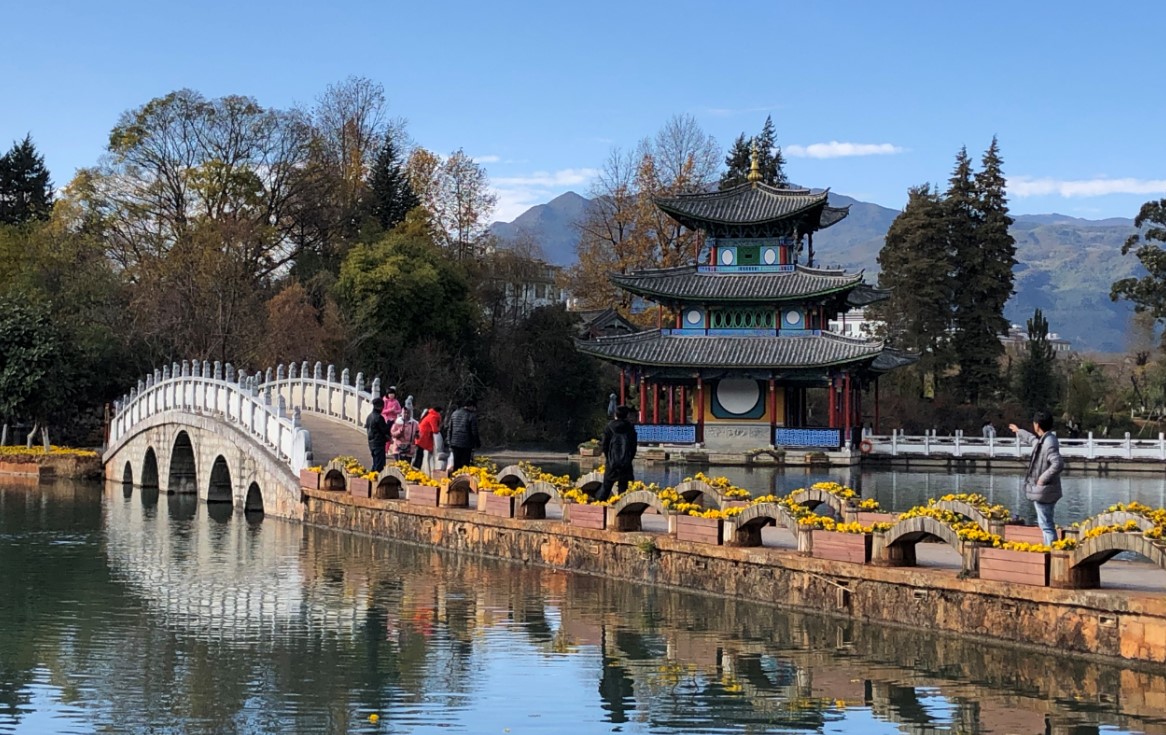Growing Australian presence in Yunnan
11 January 2019
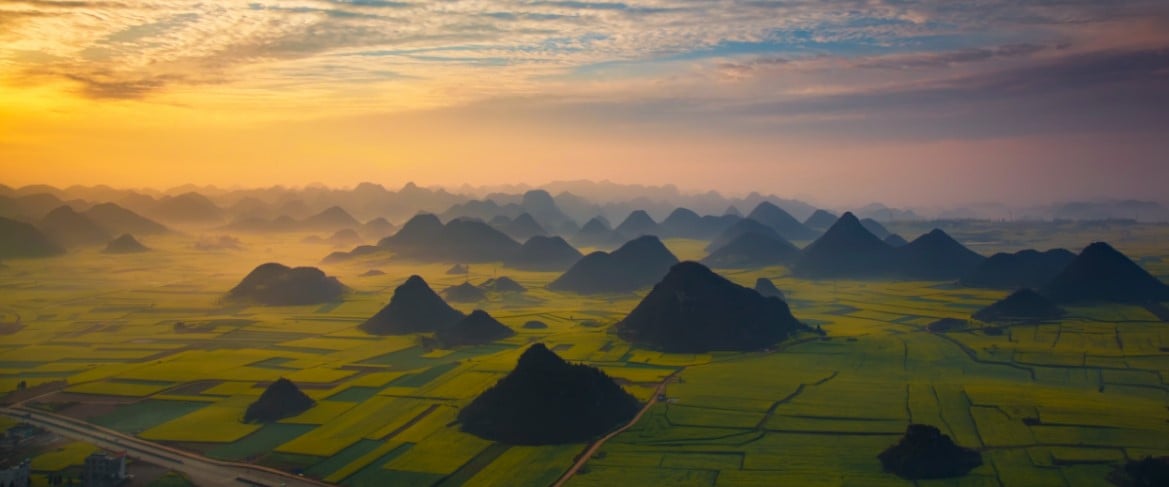
Yunnan’s terrain is largely mountainous. Source: Shutterstock
Yunnan has spectacular tourism destinations such as Shangri-La, Lijiang and Dali. The provincial capital of Kunming is also interesting for its fascinating Second World War history. It was the base of the Flying Tigers, the three squadrons of American pilots that flew over the eastern end of the Himalayan Mountains (known as ‘The Hump’) from India to the part of China cut off by occupying Japanese forces to the east, bringing valuable supplies during the war years.

‘The Hump’. Source: Australian War Memorial P02018.264
It comes as no surprise, then, that there are increasing opportunities for Australian business in Yunnan. Austrade – which has had an office in Kunming since 2000 – has identified exports of Australian agricultural technology, health capability, food and beverage, education and tourism to be the main areas of interest.
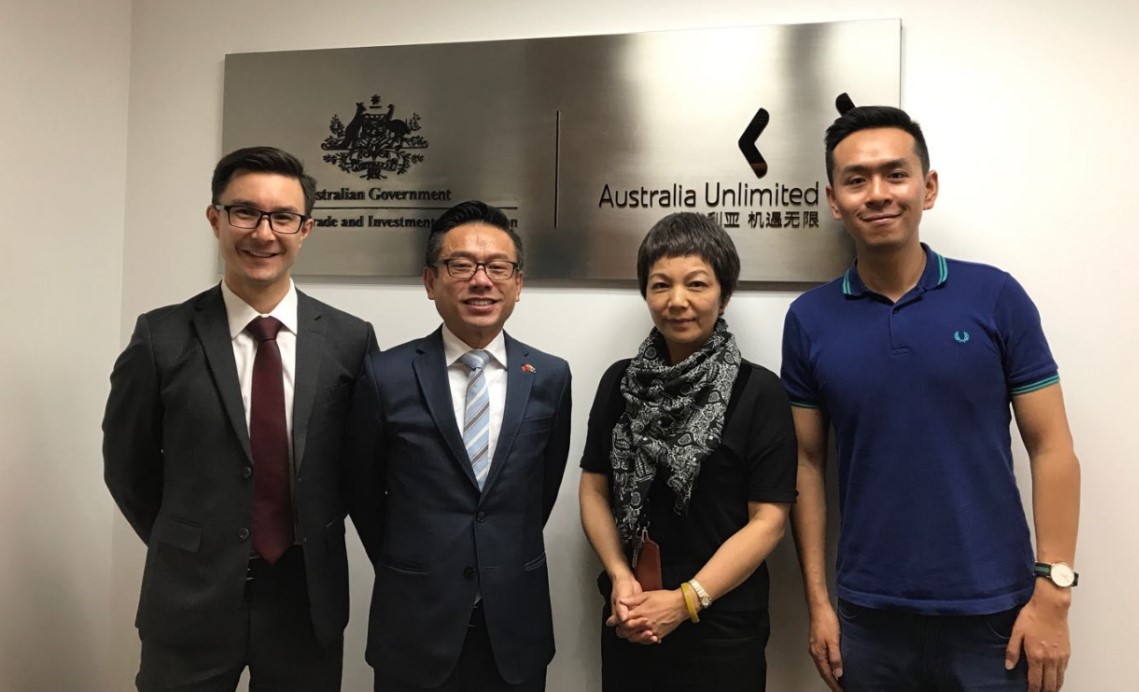
Austrade Kunming’s Alice Guo (centre right) and Devon Li (right) with Consul-General Christopher Lim (centre left) and Consul Lance Truong (left)
The Yunnan Province Chief Representative has an office in Sydney to facilitate greater trade and investment links with Australia. There’s also a direct flight between Kunming and Sydney.
Australia has a substantial agricultural relationship with Yunnan, built over many decades by quiet achievers on both sides. For example, Australia has a longstanding relationship with the Yunnan Academy of Grassland and Animal Science, which started with an A$ 9.5 million (RMB 48 million) grant to develop a new cattle breed in 1983. Over 20 years, the Academy cross-bred imported Murray Grey cattle with local Yunnan Yellow Cattle, with Australian Brahman Cattle strains introduced later. The research efforts produced a new cattle breed: BMY cattle. The Chinese Ministry of Agriculture recognised BMY cattle in October 2014 as China’s fourth cattle category and renamed it Yunling Niu, meaning beef from the Yunnan Plateau.

Former Ambassador to China David Sadleir inspects BMY cattle in 1987. Source: DFAT
As I’ve written previously (see here), Australian company Aust-For has operated a bio-fertiliser plant and an Eco-Park Project in Wenshan in Yunnan since earlier this year. Covering 100 hectares, Aust-For's operation utilises cutting-edge Australian technology to improve agricultural productivity and sustainability. The techniques employed on the project are based on "soil to table" farming and food concepts. The site also includes a bio-fertiliser production centre and a marketplace and restaurant serving organic fruit and vegetables grown at the site.
I recently visited a large berry plantation in Jianshui county where Costa, the largest Australian berry company (in partnership with American company Driscoll), has made a substantial investment. To meet domestic market demand, Costa expanded its business with a larger farm in Xishuangbanna in 2016, with an estimated 200 hectares. Costa now provides high-quality raspberries, blueberries and blackberries to supermarkets throughout China. Costa won the Australia-China Business Award for agricultural technology in 2018.
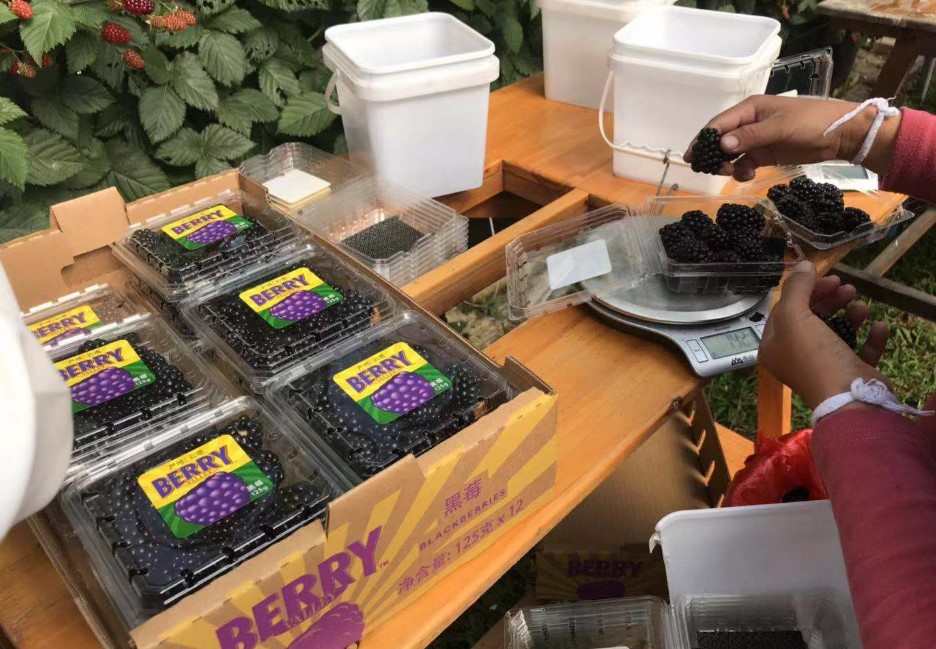
Blackberries grown in Yunnan. Source: DFAT
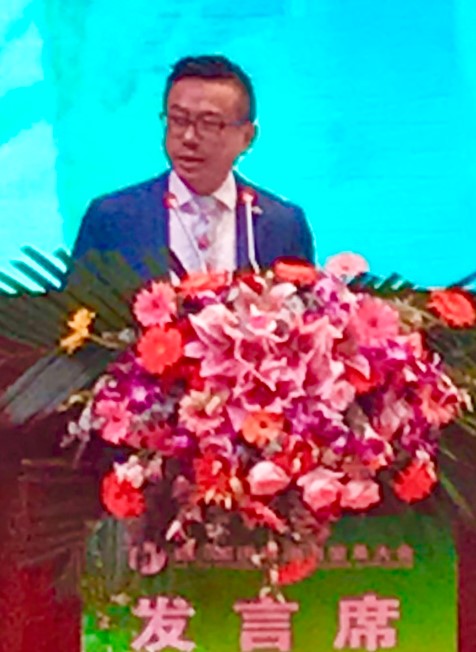
Consul-General Lim delivers an address at the International Macadamia Symposium. Source: DFAT
